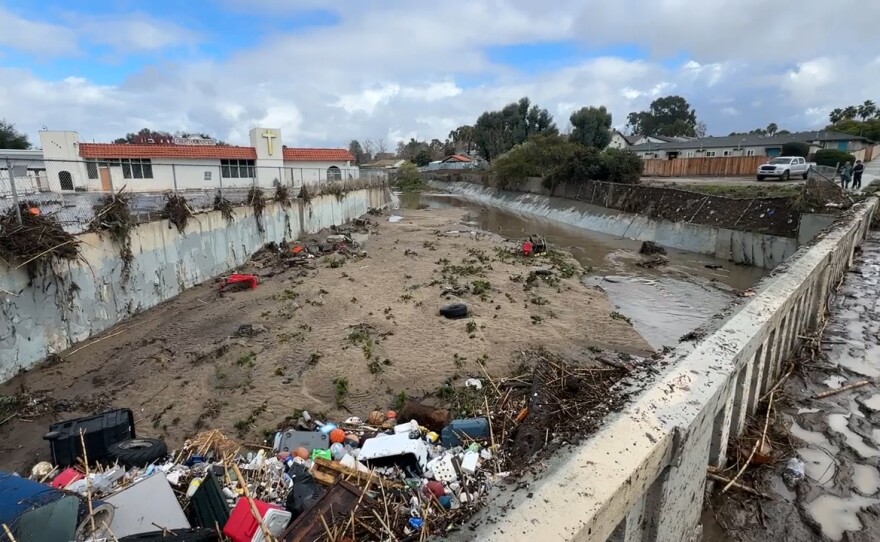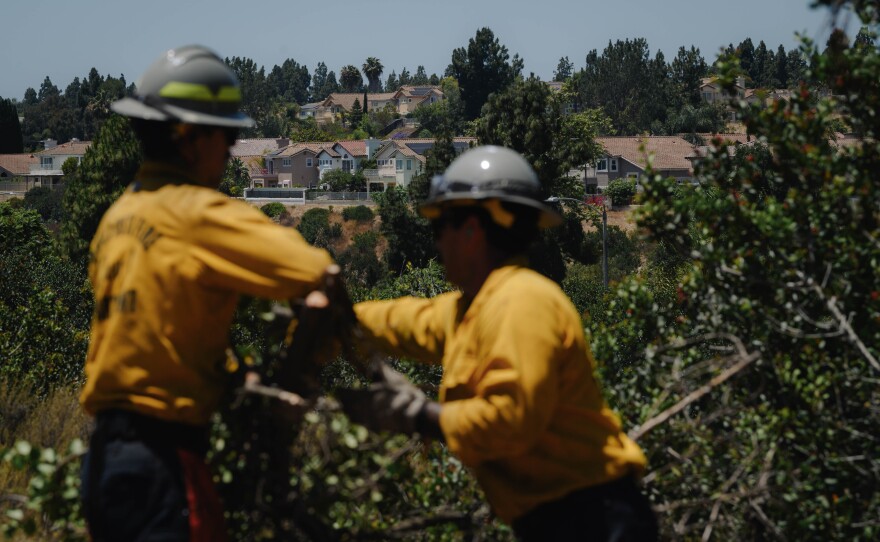When a disaster hits, it can catch people by surprise. Often many people are not prepared for the devastation.
Our region itself is home to a number of potential hazards including wildfires, floods, earthquakes, extreme heat and more.
Already this year several fires have sparked in San Diego County and across the state. Firefighters are in the thick of it working to put the fires out.
And a recent KPBS report found that Chula Vista is at risk of a major wildfire. An emergency document that is part of a countywide plan and was updated last year, says a lot of the risk comes from canyons in the eastern half of the city. That document also notes that a major fire could affect more than three-quarters of the city.
Plus, earlier this year, residents were caught by surprise in a disaster of a different kind — a major storm pounded San Diego on Jan. 22. Within a few hours the rain generated historic floods and left behind enormous damage. Several people died and hundreds of others lost their homes, cars and many other beloved personal belongings.

The downpour exposed longstanding inadequacies of San Diego's stormwater infrastructure, especially in neighborhoods in underserved communities who were among the most impacted.
The impact of the rain and the infrastructure deficiencies in underserved communities dominated a community conversation hosted by KPBS with community leaders and influencers back in February of this year.
The discussion was meant to focus on the high cost of living and its impact on voting. But instead community members expressed frustration over the neglect of low-income communities and heartbreak to see so many people caught off guard and suffering.
Their feedback inspired the KPBS report on Chula Vista’s fire risk and this call for input on preparing for potential disasters.

KPBS wants to hear from you. How prepared are you for a disaster? What steps have you taken to prepare yourself, your family, your valuables, your community? In the event of an emergency do you have a plan, a network to help? Where does preparing for an emergency rank as a priority? Or are there competing priorities? What resources do you use? What are some affordable steps you are aware of? What tips and recommendations can you share with others who are also at risk?
Share your response in the form below. KPBS might use it in future reporting.
_







